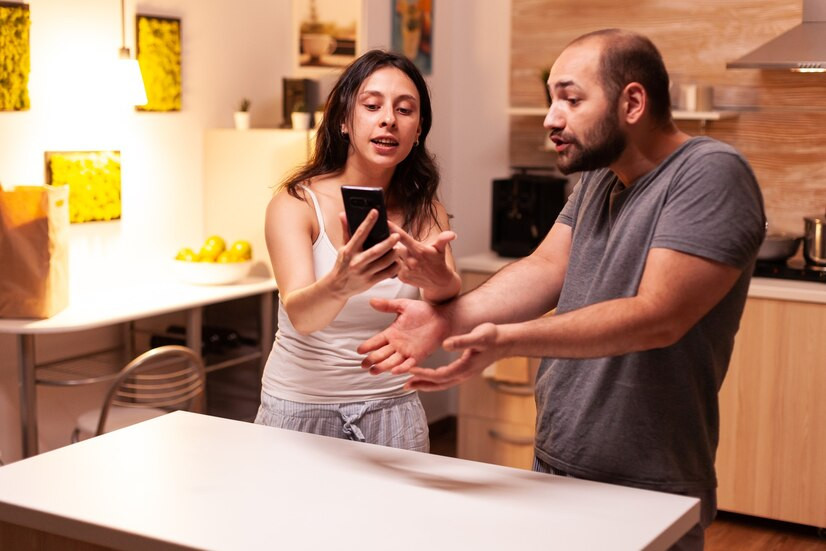Technological developments have made it easier for information to spread to all levels of society. Unfortunately, this also means the spread of invalid information, including conspiracy theories. On the other hand, people easily accept conspiracy theories instead of finding out the truth behind them. Why do people believe conspiracy theories so easily? Find out in this article.
What's a Conspiracy Theory?
Conspiracy theory can be defined as a theory that seeks to explain that an event can occur due to a conspiracy or a plot from a group of very influential organizations or people. These conspiracy theories sometimes have supporting evidence although most conspiracy theories cannot be proven.
Some of the most popular conspiracy theories include that the earth is actually flat, the moon landing was a fabrication, or the theory that the Covid-19 virus is a biological weapon.
Conspiracy theories are generally characterized by news about social or political phenomena that are unique (although they can talk about other phenomena), unusual and contrary to what the general public believes. Conspiracy theories are also often associated with political events that are often associated with the fight between the good side and the opposite side. Another characteristic of conspiracy theories is that they suggest that the facts received by the public are a ruse or an attempt to divert public attention from the real facts.
Read more: Mengenal Decision Fatigue, Kelelahan Akibat Mengambil Keputusan
Why People Easily Believe in Conspiracy Theories
When you hear about conspiracy theories, you might feel that they don't really make any sense. However, there are still many people who choose to believe in conspiracy theories. According to research, there are many factors that reveal why it is easy for someone to believe in conspiracy theories, including:
Epistemic reasons
One of the reasons why people so easily believe conspiracy theories is the epistemic reason behind it. Epistemic reasoning is the desire to gain certainty and understanding about something. Many people want to understand what is happening around them and are driven to find explanations for what is happening. By believing in conspiracy theories, they can more easily understand the phenomena happening around them.
Read more: Mengapa Depresi Makin Parah di Malam Hari?
The desire to feel more secure and in control
There are times when an issue makes a person feel anxious, panicked, or unsure of how to deal with it. When conspiracy theories emerge that someone else is responsible for the issue, they feel safer, less responsible and more in control of their lives.
For example, when faced with the issue of climate change or global warming. If you believe that global warming is just a conspiracy theory, then you don't need to make any changes to your lifestyle. This way, your life can be calmer.
Social reasons
Many people choose to believe in conspiracy theories for social reasons. In society, there is an assumption that a group of people who believe in conspiracies will consider other groups who do not believe as opposition. Those who believe in conspiracies can believe that they are the better person or group.
Another reason is that believing in conspiracy theories can also be interpreted as a form of self-defense mechanism. When someone is on the losing side, they will look for validation or justification to make them feel better. It is easy to blame others by linking them to a conspiracy theory that they have done something bad. With this situation, he will more easily believe in conspiracy theories that support his position.
Believing in conspiracy theories without checking the facts can lead you to ignore real evidence. Belief in conspiracy theories can also be detrimental to yourself and others such as refusing certain vaccinations or medications so that you have no protection against an illness. In other cases, conspiracy theories can lead to distrust of institutions such as the government.
Therefore, always check facts from reliable sources and develop critical thinking in dealing with emerging conspiracy theories. If you need medical advice or consultation, you can either visit a doctor or make use of the consultation features that are available in the Ai Care application by downloading the Ai Care application from the App Store or Play Store.
Looking for mare information or tips regarding health, first aid, and other home remedies? Click here!
- dr Hanifa Rahma
American Psychological Association. (2023). Why some people are willing to believe conspiracy theories. Available from: https://www.apa.org/news/press/releases/2023/06/why-people-believe-conspiracy-theories
Cherry, K. (2020). Why People Believe in Conspiracy Theories. Available from: https://www.verywellmind.com/why-people-believe-in-conspiracy-theories-4690335
Casabianca, S., Pedersen, T. (2021). Why Do Some People Believe in Conspiracy Theories?. Available from: https://psychcentral.com/blog/conspiracy-theories-why-people-believe












